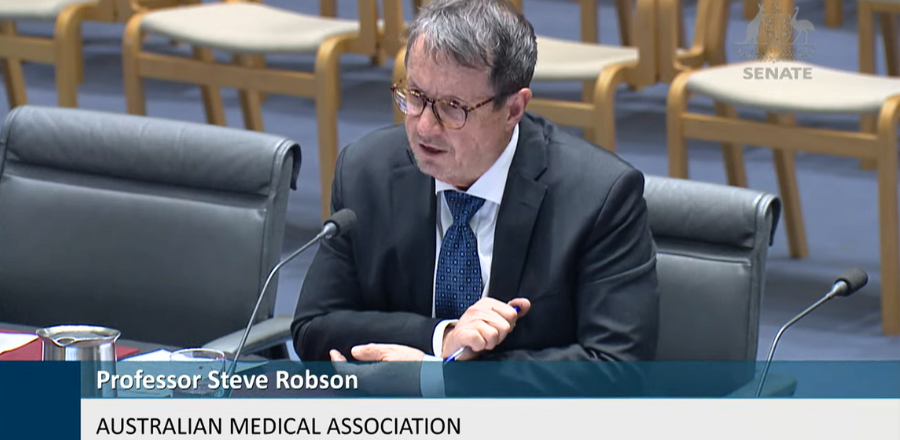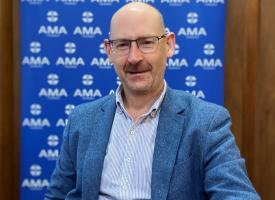AI has great ‘co-pilot’ potential, but doctors remain in the driver’s seat
This week we told a Senate committee hearing that artificial intelligence will be transformative in healthcare but its role must be as a co-pilot only.

AMA President Professor Steve Robson and Public Health Committee Chair Dr Michael Bonning appeared at the Senate’s Select Committee on Adopting Artificial Intelligence (AI) on Wednesday.
The pair lauded the great potential of AI to deliver extraordinary innovation for how care is delivered in Australia.
In his opening statement, Professor Robson said there would be many potential benefits for all doctors, healthcare workers, patients and the wider economy.
“We are at a time when the demands on our health system are overwhelming – our health system is under-resourced and staff across the health system are under more pressure than ever. This is going to make the lure of AI immense, and it will be asked to solve many problems that are thought to be insoluble,” Professor Robson said.
But the AMA President said systems must be in place to ensure AI can be trusted to truly improve patient care.
“We need to make sure that we harness its power for the greatest good, and make sure that it is a safe and trustworthy co-pilot in human healthcare, and we need to make sure that AI never takes over the controls,” he said.
Dr Bonning said that integrating AI into his clinical work has helped with administrative burdens, freeing up his time to spend with patients.
“For me, as a clinician, my level of burnout is significantly reduced,” Dr Bonning said.
“Eight hours of patient consulting probably generates 2–3 hours of note taking, letter writing and if you can automate that, then I am much more likely to continue practising at the level I do rather than scaling back work hours, so it’s a net benefit for my patients.”



